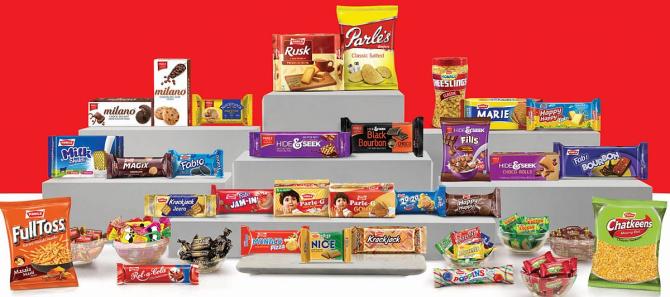Indian consumers are likely to get respite from rising prices just before the festival season.

Some consumer companies, including automakers, have indicated that they are planning to pause price hikes just before demand picks up in August, while keeping a close eye on volatile raw material prices.
Consumer product companies have defended steep hikes over the past year, arguing that their price increase has remained lower than the rise in commodity prices.
“At a macro level in the June quarter, our commodity price inflation was 20 per cent.
"Our price increase has been 12 per cent, (though) it gets accentuated in certain categories,” said Sanjiv Mehta, MD & CEO of Hindustan Unilever, a subsidiary of global consumer product maker Unilever.
Parle Products, an unlisted food company, plans to wait for a month before taking further decisions on pricing.
“If commodity prices remain low, we will give discounts on bigger packs and promotion offers on smaller packs,” Mayank Shah, category head at Parle Products, told Business Standard.
But Shah said as wheat prices have started to rise again since last week, the company has decided to wait before taking any decision on discounts or promotions.
According to economists, inflation is likely to ease by October as the monsoons have been progressing well with the cumulative rainfall being 9 per cent above the long-term average up to July 12.
Also, global commodity prices have moderated due to increased recession risks in the US and Eurozone.
If this trend continues, this will be good news for Indian consumers who are either downgrading to cheaper products or postponing their purchases.
Westlife Development, which operates American food major McDonald’s outlets in south and west India, raised prices by 5 per cent in the June quarter.
Jubilant Foodworks, which operates Domino’s Pizza, a global food chain, in India has already taken double-digit price hikes in the past six months.
Analysts said it would be difficult for the company to take another round of price hikes, even if raw material prices rise further as there is a risk of consumer pullback.
Sanjiv Puri, chairman and managing director of ITC, which runs a fledgling consumer products business, said there is some relief in commodity prices but predicting the future is difficult as there are multiple factors at play.
“While there will be some moderation as the signs show, for some time, inflation will remain at an elevated level compared to what it was in the past,” said Puri.
“We understand the stress on account of inflation and therefore, passing on or raising prices is the last lever we use.
"We normally try to manage it through cost efficiencies.
"This time, the magnitude of inflation was so high that price action was required.
"But whatever savings are there, there is no question it has to get passed on to the consumer,” Puri said after addressing the company’s shareholders.
Makers of automobiles, including two-wheelers, have indicated that as their input costs like steel prices cool down, they may not go for price hikes in the festival season.
These companies, however, continue to tread with caution and steer clear of giving any guidance for the forthcoming quarters.
“We are hopeful of commodity prices cooling down.
"It is difficult to give any fixed guidance because situations vary,” said Ajay Seth, chief financial officer of India's biggest carmaker Maruti Suzuki India.
While the company has visibility regarding costs for the ongoing quarter as rates are fixed before the start of the three-month period, the trend ahead is unpredictable, Shah told investors last week.
“We definitely see prices across all commodities, including steel and other metals, being much lower than what they were in the June quarter of this year,” he said, without committing to lowering prices.
Other companies echoed Seth’s sentiment.
Bajaj Auto said it has recovered about two-thirds of raw material cost inflation by raising prices and as commodity prices start softening, the company shall refrain from further price hikes.
Bajaj Auto’s overall approach has been to pass on cost increases, said Rakesh Sharma, executive director of Bajaj Auto.
“Now, we're not seeing any cost increase but we will not cut prices to push demand.
"I don't see any reason to resort to reducing prices to stimulate demand. We will expect our new product introductions to be attractive,” he said.
TVS Motor, a Chennai-based two-wheeler maker, said the overall cost impact of commodity price increases was 2 per cent in the first quarter and the company raised prices by 1.5 per cent.
"’In addition to the price increases, a combination of product mix and a sustained material cost reduction helped the company keep its material costs almost at the same level or slightly better than the fourth quarter,” said K N Radhakrishnan, chief executive and director, TVS Motor.
Tata Motors, which makes passenger vehicles and trucks, is unlikely to increase prices any further as it has already gone for several rounds of price hikes.
“Now that the commodity prices are softening, we don’t need to raise prices,” said PB Balaji, chief financial officer, Tata Motors.
But Vinkesh Gulati, president, Federation of Automobile Dealers Association (FADA), said he doesn't see any benefit of reduced material costs being passed on to buyers.
“If anything, auto companies will use festivals -- when demand is strong and the sentiment is buoyant -- to go for another round of price hike.”










